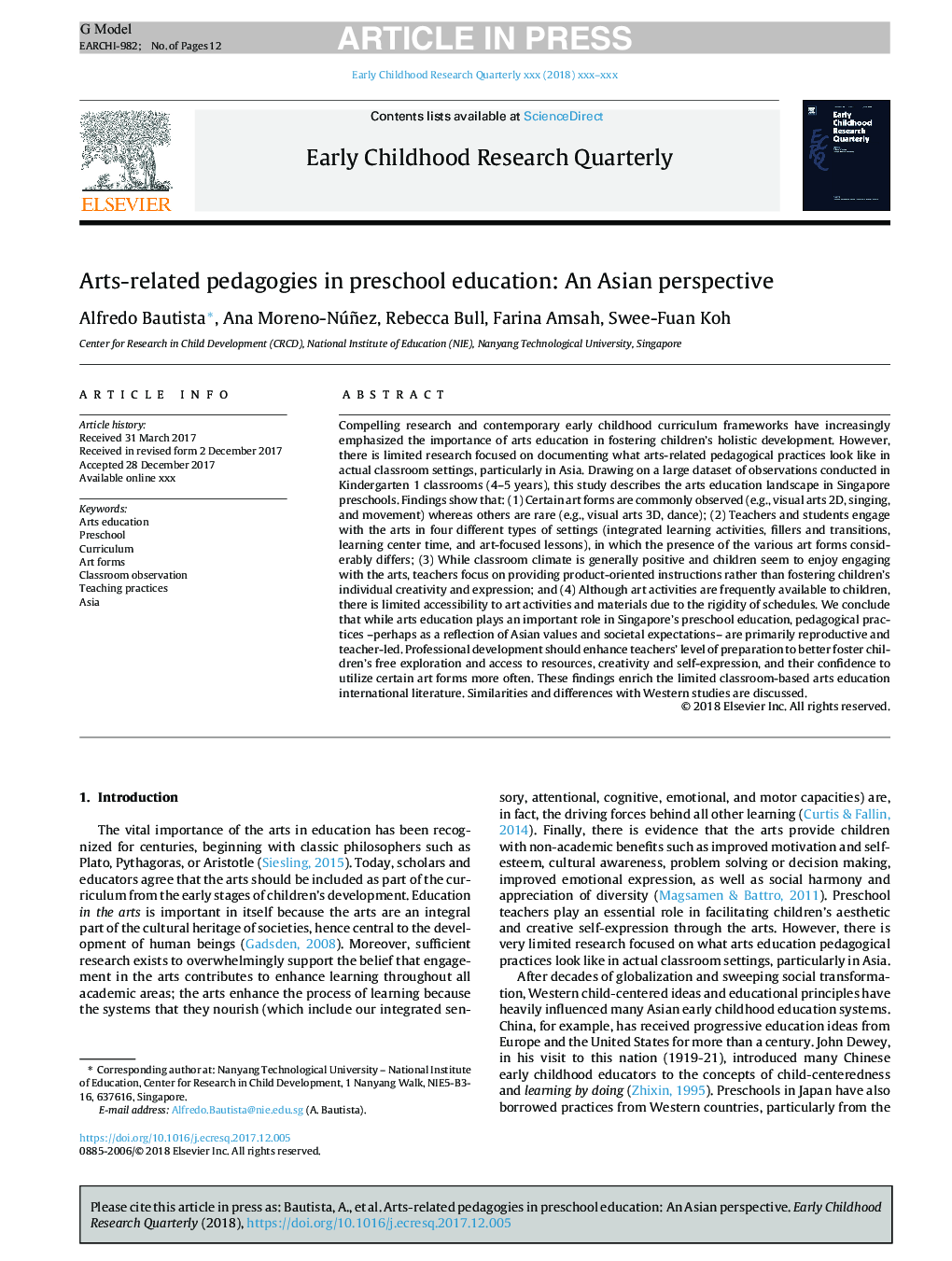| Article ID | Journal | Published Year | Pages | File Type |
|---|---|---|---|---|
| 11002145 | Early Childhood Research Quarterly | 2018 | 12 Pages |
Abstract
Compelling research and contemporary early childhood curriculum frameworks have increasingly emphasized the importance of arts education in fostering children's holistic development. However, there is limited research focused on documenting what arts-related pedagogical practices look like in actual classroom settings, particularly in Asia. Drawing on a large dataset of observations conducted in Kindergarten 1 classrooms (4-5 years), this study describes the arts education landscape in Singapore preschools. Findings show that: (1) Certain art forms are commonly observed (e.g., visual arts 2D, singing, and movement) whereas others are rare (e.g., visual arts 3D, dance); (2) Teachers and students engage with the arts in four different types of settings (integrated learning activities, fillers and transitions, learning center time, and art-focused lessons), in which the presence of the various art forms considerably differs; (3) While classroom climate is generally positive and children seem to enjoy engaging with the arts, teachers focus on providing product-oriented instructions rather than fostering children's individual creativity and expression; and (4) Although art activities are frequently available to children, there is limited accessibility to art activities and materials due to the rigidity of schedules. We conclude that while arts education plays an important role in Singapore's preschool education, pedagogical practices -perhaps as a reflection of Asian values and societal expectations- are primarily reproductive and teacher-led. Professional development should enhance teachers' level of preparation to better foster children's free exploration and access to resources, creativity and self-expression, and their confidence to utilize certain art forms more often. These findings enrich the limited classroom-based arts education international literature. Similarities and differences with Western studies are discussed.
Related Topics
Social Sciences and Humanities
Psychology
Applied Psychology
Authors
Alfredo Bautista, Ana Moreno-Núñez, Rebecca Bull, Farina Amsah, Swee-Fuan Koh,
